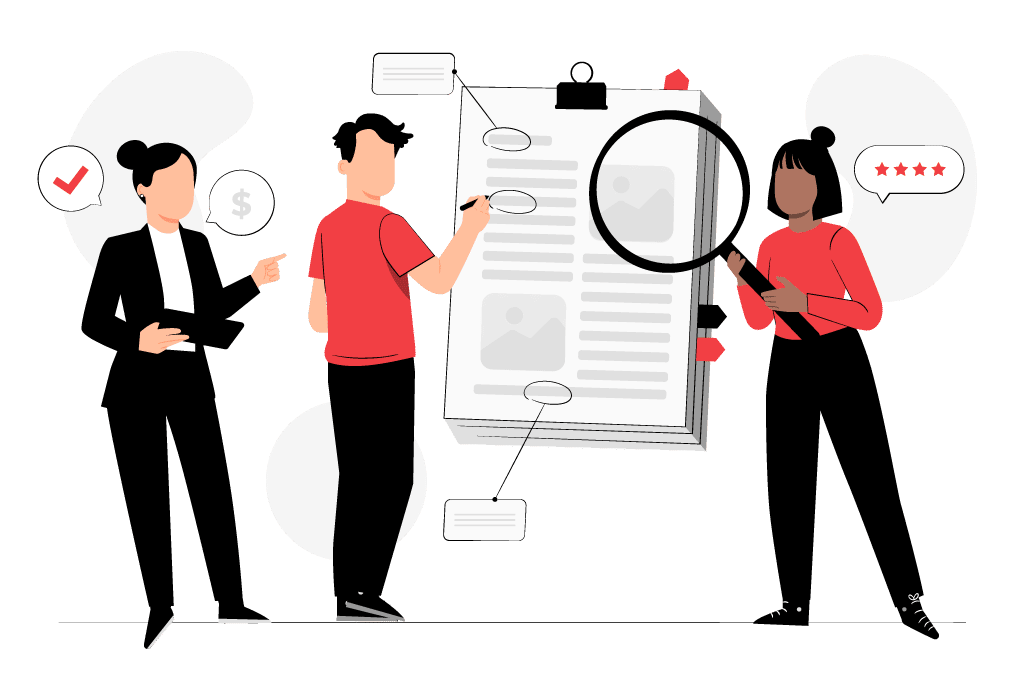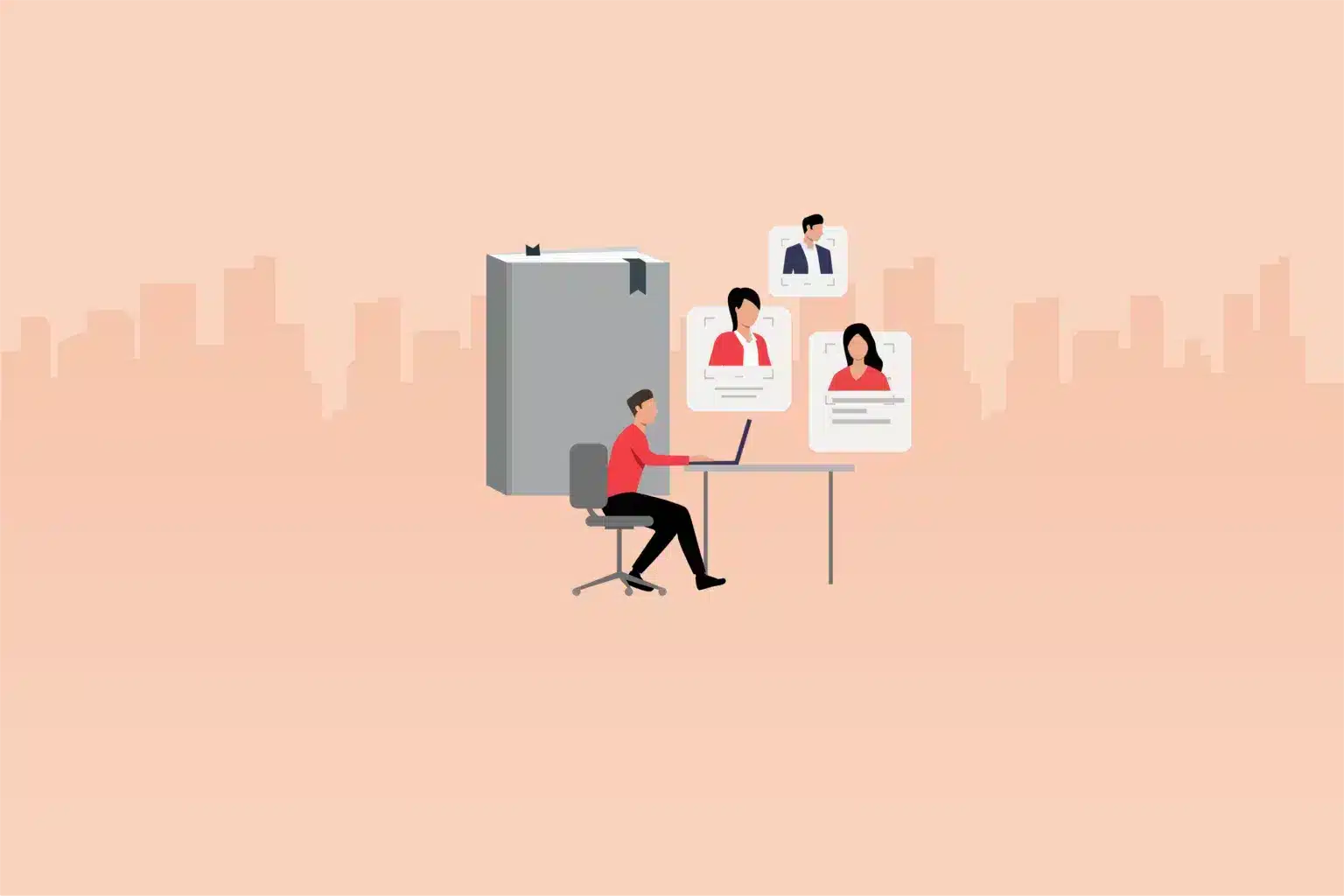The role of a training coordinator has become increasingly vital in today’s rapidly evolving business landscape. As organizations strive to stay competitive and adapt to changing market dynamics, the need for skilled employees is paramount. Consequently, the demand for proficient Training Coordinators has seen a significant upswing in recent years.
According to industry data and analytics, the recruiting trend for Training Coordinators has been on a steady rise, with a projected growth rate of X% over the next five years.HR professionals and CXOs recognize that effective training programs are critical for fostering employee development, enhancing productivity, and ultimately driving organizational success. In this context, finding exceptional Training Coordinators who possess the right blend of interpersonal skills, instructional expertise, and organizational acumen has become a priority for talent acquisition teams. In light of these trends, it is crucial for HR personnel and CXOs to be well-informed about the evolving landscape of Training Coordinator recruitment and the key competencies to assess during the hiring process.
Here are the top 60 Training Coordinator interview questions to ask job applicants:
15 general interview questions for Training Coordinator
- Can you provide an overview of your experience and qualifications as a Training Coordinator?
- How do you assess training needs within an organization and develop training programs accordingly?
- Can you describe your approach to creating effective training materials and resources?
- How do you ensure that training programs align with organizational goals and objectives?
- Can you share an example of a successful training initiative you implemented and the impact it had on employee performance or organizational outcomes?
- How do you measure the effectiveness of training programs and evaluate the progress of participants?
- How do you stay updated on industry trends and best practices in training and development?
- How do you handle challenging situations or resistance to training from employees or stakeholders?
- Can you describe your experience with managing budgets and resources for training programs?
- How do you collaborate with subject matter experts and other stakeholders to design and deliver training?
- Can you discuss your experience with different training delivery methods, such as in-person sessions, e-learning, or blended learning?
- How do you ensure that training programs are engaging and interactive for participants?
- Can you explain your approach to tracking and documenting training outcomes and participant feedback?
- How do you prioritize and manage multiple training initiatives simultaneously?
- Can you describe a time when you had to adapt a training program to meet the specific needs or preferences of a diverse group of learners?
5 sample answers to general interview questions for Training Coordinator
- Can you provide an overview of your experience and qualifications as a Training Coordinator?
Look for: A candidate who highlights relevant experience in designing and delivering training programs, as well as any certifications or educational qualifications in training and development.
Example answer: “I have over five years of experience as a Training Coordinator, where I have successfully designed and implemented various training programs across multiple industries. I hold a Bachelor’s degree in Training and Development, and I am also certified in instructional design and adult learning methodologies.”
- How do you assess training needs within an organization and develop training programs accordingly?
Look for: Evidence of a structured approach to conducting training needs assessments, involving gathering feedback from stakeholders and using data to identify skill gaps and performance improvement opportunities.
Example answer: “When assessing training needs, I begin by conducting surveys, interviews, and focus groups with employees and managers to gather their input. I also analyze performance data and feedback from performance evaluations. By combining these insights, I can identify areas where additional training is needed and develop targeted programs to address those needs.”
- How do you measure the effectiveness of training programs and evaluate the progress of participants?
Look for: Familiarity with various evaluation methods, such as Kirkpatrick’s model, and the ability to describe how they collect and analyze data to assess the impact of training on employee performance.
Example answer: “I employ a multi-level evaluation approach, starting with immediate feedback surveys after each training session. I also conduct pre- and post-training assessments to measure knowledge gain and conduct follow-up assessments after a few weeks or months to gauge the application of learned skills on the job. Additionally, I track performance metrics and compare them with baseline measurements to determine the effectiveness of the training programs.”
- How do you handle challenging situations or resistance to training from employees or stakeholders?
Look for: Strong communication and interpersonal skills, along with the ability to address concerns, build rapport, and demonstrate the value and benefits of training.
Example answer: “In such situations, I believe in open and honest communication. I actively listen to the concerns of employees or stakeholders, empathize with their perspectives, and address any misconceptions or fears they may have. By providing clear explanations and examples of the positive impact that training can have on individuals and the organization, I can often help alleviate resistance and gain buy-in.”
- Can you describe a time when you had to adapt a training program to meet the specific needs or preferences of a diverse group of learners?
Look for: Adaptability and flexibility in modifying training content or delivery methods to accommodate different learning styles, cultural backgrounds, or skill levels.
Example answer: “In a recent training program, I had participants with varying levels of experience and different learning preferences. To address this, I incorporated a mix of instructional strategies, such as interactive group activities, multimedia presentations, and hands-on simulations. Additionally, I provided supplementary materials and resources tailored to individual learning needs. The participants appreciated the customized approach, and the feedback received indicated increased engagement and knowledge retention.”
15 behavioral interview questions for Training Coordinator
- Tell me about a time when you had to design a training program from scratch. How did you determine the learning objectives and create the curriculum?
- Describe a situation where you had to deliver training to a diverse group of learners with varying levels of experience. How did you adapt your approach to ensure all participants were engaged and able to grasp the content?
- Can you share an example of a time when you had to handle a difficult participant during a training session? How did you manage the situation while maintaining a positive learning environment?
- Tell me about a training initiative you implemented that resulted in measurable improvements in employee performance or organizational outcomes. How did you measure the effectiveness of the program?
- Describe a situation where you had to manage competing priorities and deadlines for multiple training projects. How did you prioritize and ensure successful completion of all projects?
- Can you give an example of a time when you collaborated with subject matter experts to develop a training program? How did you ensure their expertise was effectively incorporated into the program?
- Tell me about a time when you had to deal with resistance from upper management regarding the implementation of a training program. How did you address their concerns and gain their support?
- Describe a situation where you had to deal with a sudden change or disruption during a training session. How did you adapt and ensure a seamless learning experience for the participants?
- Can you share an example of a time when you had to deliver training on a complex or technical topic to non-technical employees? How did you simplify the content and ensure understanding?
- Tell me about a time when you used technology or e-learning platforms to enhance training delivery. How did you ensure a smooth transition and engagement of participants?
- Describe a situation where you had to assess training needs in a remote or virtual work environment. How did you gather feedback and identify the most effective training solutions?
- Can you give an example of a time when you had to provide feedback or coaching to a colleague or subordinate regarding their training delivery? How did you ensure their professional development while maintaining a positive relationship?
- Tell me about a situation where you encountered resistance or skepticism from employees regarding the value of training. How did you persuade them of the importance and relevance of the training program?
- Describe a time when you had to make adjustments to a training program on short notice due to unforeseen circumstances. How did you handle the situation, and what impact did it have on the program’s success?
- Can you share an example of a time when you had to work with a limited budget to develop and deliver a training program? How did you optimize resources and still achieve desired outcomes?
5 sample answers to behavioral interview questions for the Training Coordinator
- Tell me about a time when you had to design a training program from scratch. How did you determine the learning objectives and create the curriculum?
Look for: Evidence of a structured approach to training program design, including conducting needs assessments, setting clear learning objectives, and developing a well-organized curriculum.
Example answer: “In my previous role, I was tasked with designing a sales training program. I started by conducting interviews and surveys with sales representatives and managers to understand their specific training needs. Based on the feedback, I determined the learning objectives and created a curriculum that covered essential sales skills, product knowledge, and customer relationship-building techniques. I also incorporated interactive activities and role-playing exercises to ensure active engagement and skill application.”
- Can you share an example of a time when you had to handle a difficult participant during a training session? How did you manage the situation while maintaining a positive learning environment?
Look for: Strong interpersonal and conflict resolution skills, along with the ability to handle challenging situations with tact and maintain a positive training atmosphere.
Example answer: “During a training session, I encountered a participant who was constantly interrupting and challenging the content being presented. I calmly acknowledged their perspective, validated their concerns, and encouraged them to share their thoughts constructively. By actively listening and addressing their questions and objections respectfully, I was able to redirect the focus back to the training content and foster a positive learning environment for all participants.”
- Describe a situation where you had to manage competing priorities and deadlines for multiple training projects. How did you prioritize and ensure the successful completion of all projects?
Look for: Strong organizational and time management skills, as well as the ability to prioritize tasks effectively and manage resources efficiently.
Example answer: “In a previous role, I had to manage simultaneous training projects with tight deadlines. I created a project plan outlining key milestones, tasks, and dependencies for each project. By assessing the urgency and impact of each project, I prioritized tasks accordingly and delegated responsibilities to team members. I also communicated transparently with stakeholders about project timelines and adjusted resources as needed to ensure successful completion of all projects within the given timeframe.”
- Can you give an example of a time when you collaborated with subject matter experts to develop a training program? How did you ensure their expertise was effectively incorporated into the program?
Look for: Collaboration skills and the ability to work with subject matter experts, leveraging their knowledge and ensuring its effective integration into the training program.
Example answer: “In a recent training initiative focused on software implementation, I collaborated with subject matter experts from the IT department. I scheduled regular meetings with them to gather insights, understand the technical aspects, and incorporate their expertise into the training materials. I involved them in reviewing and validating the content, conducting practice sessions, and providing input on real-life scenarios. This collaborative approach ensured that the training program aligned with the latest industry practices and effectively addressed the needs of the learners.”
- Describe a situation where you had to make adjustments to a training program on short notice due to unforeseen circumstances. How did you handle the situation, and what impact did it have on the program’s success?
Look for: Adaptability and problem-solving skills, along with the ability to handle unexpected changes or challenges while maintaining the effectiveness of the training program.
Example answer: “During a training session, we experienced technical difficulties that prevented the use of the planned multimedia presentations. To adapt quickly, I engaged the participants in interactive discussions and hands-on activities that allowed them to share their experiences and apply the concepts being taught. Although it required improvisation, the participants appreciated the interactive approach, and feedback indicated that they found the session engaging and informative despite the unforeseen circumstances.”
15 personality interview questions for the Training Coordinator
- How do you handle high-pressure situations and tight deadlines while maintaining the quality of your work?
- Describe a time when you had to work with a challenging team member or stakeholder. How did you approach the situation and maintain a positive working relationship?
- How do you stay organized and manage your time effectively when juggling multiple tasks and projects?
- Can you describe a time when you had to adapt your communication style to effectively convey information to a diverse group of individuals?
- Tell me about a time when you had to facilitate a training session for a large audience. How did you ensure engagement and manage the dynamics of the group?
- How do you stay motivated and enthusiastic when faced with repetitive or routine tasks?
- Describe a situation where you had to take initiative and go above and beyond your regular responsibilities to ensure the success of a training program.
- How do you handle constructive feedback and incorporate it into your professional development?
- Can you share an example of a time when you had to mediate a conflict or disagreement during a training session? How did you resolve the situation?
- How do you foster a positive learning environment and encourage active participation from participants during training sessions?
- Describe a time when you had to handle unforeseen technical issues during a virtual training session. How did you troubleshoot and keep the session running smoothly?
- How do you approach continuous learning and staying updated with the latest industry trends and best practices in training and development?
- Tell me about a time when you had to handle a challenging participant who was resistant to change or reluctant to participate in training activities. How did you motivate and engage them?
- How do you handle feedback from participants who may not have found a training session valuable or effective? How do you use that feedback to improve future training programs?
- Can you describe a time when you had to make a difficult decision regarding the allocation of limited resources for training programs? How did you ensure fairness and maximize the impact of the available resources?
5 sample answers to personality interview questions for the Training Coordinator
- How do you handle high-pressure situations and tight deadlines while maintaining the quality of your work?
Look for: Resilience, time management skills, and the ability to prioritize tasks effectively while ensuring the delivery of high-quality work.
Example answer: “When faced with high-pressure situations and tight deadlines, I remain calm and focused. I break down tasks into manageable chunks and create a schedule that allows for adequate time allocation to each task. I prioritize based on urgency and impact, ensuring that critical elements are addressed first. By maintaining open communication with stakeholders and proactively seeking support when needed, I am able to meet deadlines without compromising the quality of my work.”
- Describe a time when you had to adapt your communication style to effectively convey information to a diverse group of individuals.
Look for: Strong interpersonal skills, cultural sensitivity, and the ability to adjust communication to resonate with diverse audiences.
Example answer: “During a training program that involved participants from different departments and cultural backgrounds, I recognized the importance of adapting my communication style. I took the time to understand their varying preferences and tailored my language and examples to resonate with each group. I used visual aids, stories, and interactive discussions to ensure that everyone could engage and understand the information being presented. By embracing inclusivity in my communication, I was able to foster a collaborative learning environment and ensure that all participants felt valued.”
- How do you foster a positive learning environment and encourage active participation from participants during training sessions?
Look for: Facilitation skills, enthusiasm, and strategies for engaging participants and promoting a positive learning atmosphere.
Example answer: “To foster a positive learning environment, I create a safe and supportive space where participants feel comfortable sharing their thoughts and ideas. I begin sessions with icebreaker activities to break the ice and build rapport. Throughout the training, I encourage active participation through group discussions, hands-on exercises, and asking open-ended questions. I also provide positive reinforcement and recognition to acknowledge participants’ contributions, which motivates them to actively engage in the learning process.”
- How do you handle feedback from participants who may not have found a training session valuable or effective? How do you use that feedback to improve future training programs?
Look for: Openness to feedback, a growth mindset, and a proactive approach to incorporating feedback for continuous improvement.
Example answer: “I value feedback from participants, even if it’s not always positive. When participants express dissatisfaction or perceive a lack of value in a training session, I take the opportunity to gather more information. I conduct post-training evaluations, engage in one-on-one conversations, and create anonymous feedback channels to encourage honest input. I carefully analyze the feedback, identify patterns or common concerns, and use that information to make adjustments to future training programs. This allows me to continuously improve the content, delivery methods, and overall effectiveness of the training I provide.”
- Can you describe a time when you had to make a difficult decision regarding the allocation of limited resources for training programs? How did you ensure fairness and maximize the impact of the available resources?
Look for: Resource management skills, decision-making abilities, and the ability to balance competing needs and priorities.
Example answer: “In a situation where resources were limited, I had to carefully allocate them to different training programs. I analyzed the objectives and outcomes of each program and assessed their alignment with organizational priorities. By considering the target audience, urgency, and potential impact of each program, I made informed decisions regarding resource allocation. To ensure fairness, I communicated transparently with stakeholders about the limitations and reasoning behind resource distribution. I also explored alternative methods, such as leveraging internal expertise or seeking external partnerships, to maximize the impact of the available resources.”
When should you use skill assessments in your hiring process for Training Coordinator?
Skill assessments should be used in the hiring process for Training Coordinators to evaluate the candidates’ abilities and ensure they possess the necessary skills for the role. Assessments provide objective data about a candidate’s capabilities, helping to validate their claims and make informed hiring decisions.
Skill assessments are important because they allow employers to go beyond resumes and interviews, providing a more comprehensive view of a candidate’s competencies. These assessments measure specific skills relevant to the Training Coordinator role, such as instructional design, training delivery, needs analysis, project management, communication, and problem-solving. By utilizing skill assessments, organizations can identify candidates who possess the practical skills and knowledge required to excel in planning, developing, and delivering effective training programs.
Several assessments can be used to evaluate the skills of Training Coordinators. Examples include:
- Instructional Design Assessment
This assessment measures a candidate’s ability to create effective training materials, including curriculum design, learning objectives, instructional strategies, and assessment methods.
- Training Delivery Assessment
This assessment evaluates a candidate’s presentation and facilitation skills, including their ability to engage participants, deliver content clearly, handle questions, and adapt training methods to different learning styles.
- Needs Analysis Assessment
This assessment assesses a candidate’s skills in conducting training needs assessments, identifying skill gaps, and developing targeted training solutions based on organizational objectives.
- Project Management Assessment
This assessment examines a candidate’s project management skills, including their ability to plan, organize, and execute training initiatives within specified timelines and budgets.
- Communication and Interpersonal Skills Assessment
This assessment evaluates a candidate’s communication skills, both written and verbal, as well as their ability to interact with diverse stakeholders, build relationships, and create a positive learning environment.
By incorporating skill assessments into the hiring process, organizations can ensure that the selected Training Coordinator candidates possess the necessary skills and expertise to drive effective training and development initiatives within the company.
Use our interview questions and skill tests to hire a talented Training Coordinator
Unlock the potential of your hiring process with Testlify’s comprehensive skill assessments and interview questions specifically designed for Training Coordinator.
Our extensive test library offers a wide range of assessments, including cognitive function, personality, situational judgment, programming, and more. By leveraging these assessments, you can objectively evaluate candidates’ abilities, ensuring you shortlist the most talented individuals efficiently.
To further enhance your hiring process, we invite you to book a free 30-minute live demo. Our expert team will guide you through the platform, showcasing relevant skill tests tailored to your hiring needs. With our support, you can streamline candidate selection, saving valuable time and resources.
Ready to find the perfect fit for your Training Coordinator role? Testlify provides the tools you need to make informed hiring decisions. Explore our skill assessments and interview questions today to uncover exceptional talent for your team.








